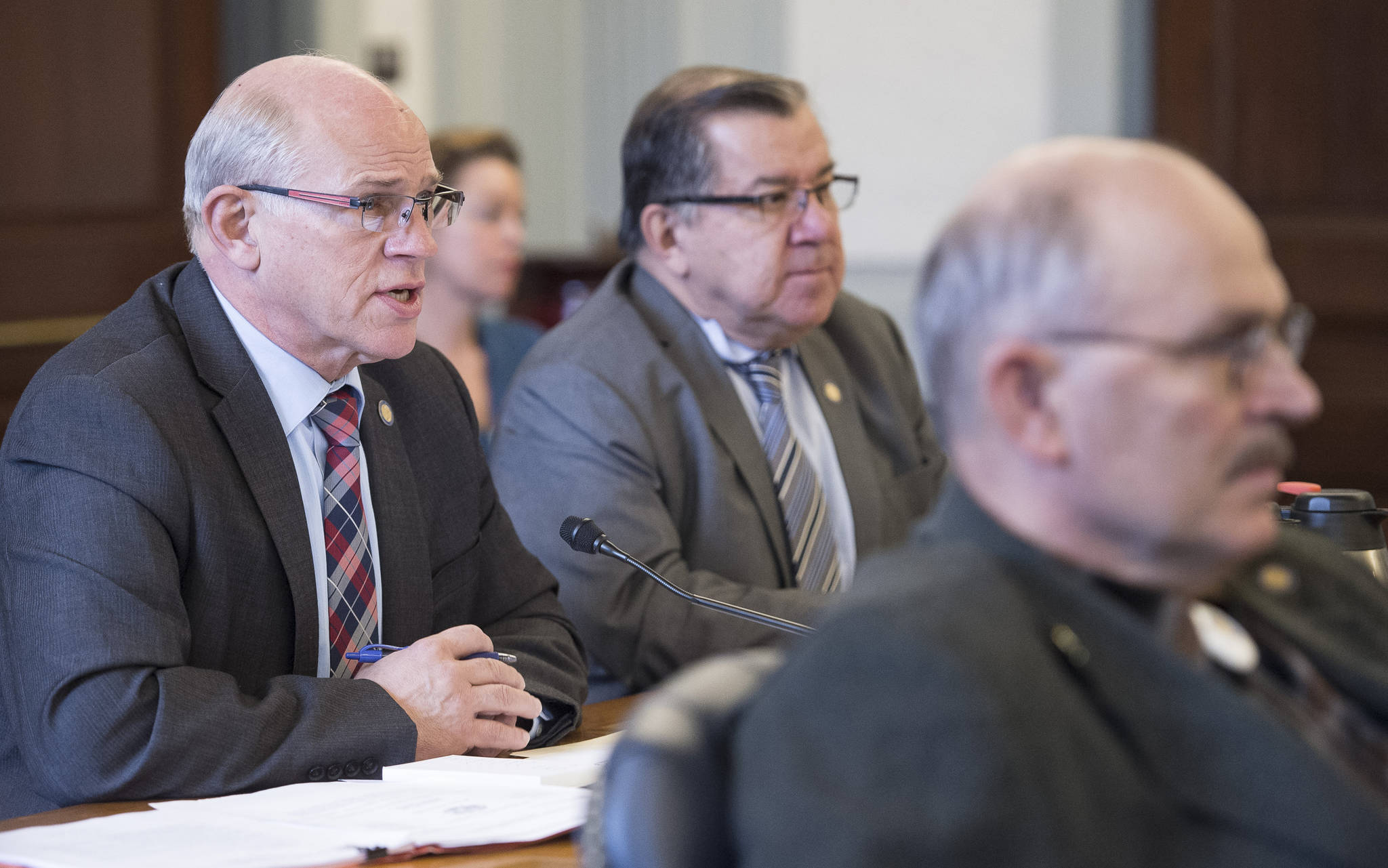On taxes, the gap between the coalition majority that runs the Alaska House of Representatives and the predominantly Republican Senate Majority can literally be measured in miles.
While the Alaska House debates changes to criminal justice, most state senators are decamping to their home districts rather than consider the other issue on the special session agenda: a state payroll tax.
“When there’s something to do, we’ll come back together,” Senate President Pete Kelly told the Empire on Monday.
The senators’ departure will save some money — they likely won’t claim per diem while away from the capitol — but it also illustrates how far the Legislature is from fixing the state’s multibillion-dollar deficit.
In April, the Alaska House approved an income tax bill. One month later, the Senate killed it in a 15-4 vote.
In this special session, Gov. Bill Walker has proposed House Bill 4001, a 1.5 percent payroll tax that would generate about $300 million to $325 million per year, according to estimates provided by the Alaska Department of Revenue.
Though that proposal is different from the one rejected by the Senate earlier this year, there’s no outward sign that the Senate Majority would vote any differently now than it did in May. Its members steadfastly believe that increased oil revenue, coupled with budget cuts and spending from the Permanent Fund, can erase the deficit.
Members of the House Majority agree that spending from the Permanent Fund is needed, but they believe that the budget has been cut enough — over 31 percent since 2015, according to figures from the nonpartisan Legislative Finance Division — and taxes are needed to fill the gap.
“It’s Alaska’s No. 1 problem, and we need a solution,” said Rep. Paul Seaton, R-Homer and co-chairman of the House Finance Committee of the state’s budget crunch.
The state is expected to have a deficit of about $2.5 billion by July 1, the start of the next fiscal year. Since the term of Gov. Sean Parnell, the state has used its Constitutional Budget reserve to cover the deficit. That reserve will not have enough money to cover the deficit in the next fiscal year.
Seaton’s committee will consider the payroll tax proposed by Gov. Bill Walker this week, but unless the Senate is on board, Alaskans shouldn’t expect that examination to mean much.
Because the House proposed an income tax, only to see the Senate reject it without a counter-offer, House leaders want the Senate to propose something.
“We’re waiting — at least, I’m waiting — for the Senate to come forward with an alternative,” Seaton said.
That’s not likely to happen during this special session.
On Wednesday, the House Finance Committee will hear an updated oil revenue forecast. While that forecast had not been released by the end of the day Tuesday, it is expected to show the state making more money from oil than expected.
That will bolster the arguments of legislators who believe that if the state simply waits, rising oil prices will ease (if not completely erase) the state’s deficit.
“I think we’re going to hear some numbers that’s going to show (a tax) is not needed or not necessary,” said Sen. Kevin Meyer, R-Anchorage.
Before the start of the session, Meyer told the Alaska Dispatch News that he’d give Walker’s tax idea a “50-50 chance” at passing during the special session.
Talking to the Empire on Tuesday, Meyer said it’s “not really accurate” to think that anymore.
He said there’s a “100 percent” chance the House would support a tax, but when it comes to the Senate, there’s a “0 percent” chance.
• Contact reporter James Brooks at james.k.brooks@juneauempire.com or call 523-2258.

